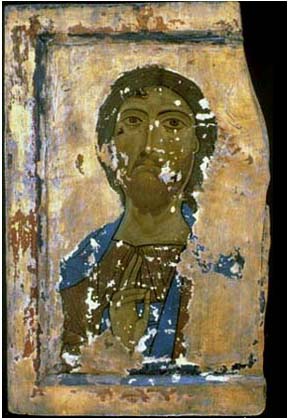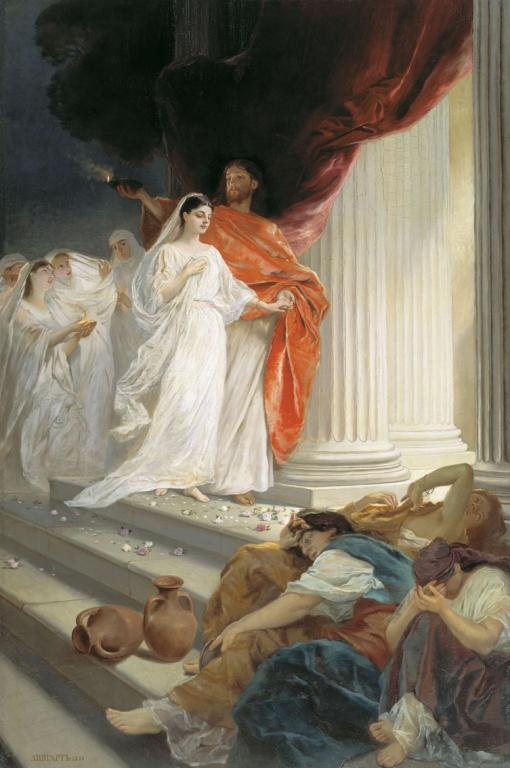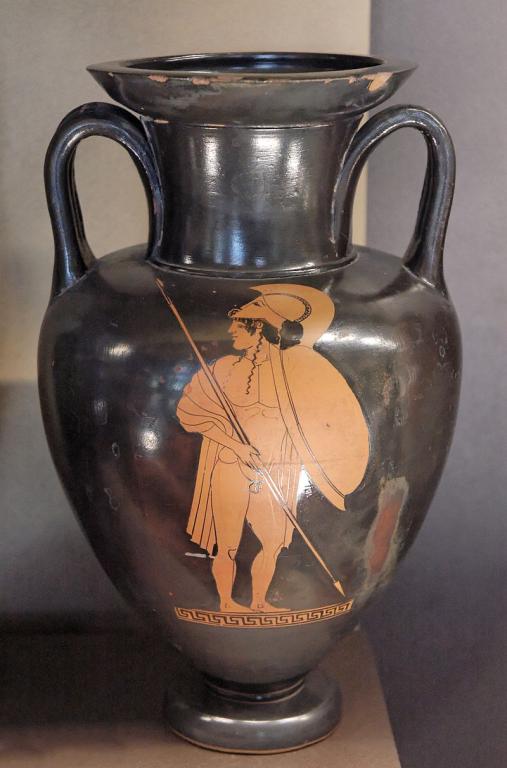
(Wikimedia CC public domain)
Compare Luke 12:41:46
What is the best way to prepare for the unexpected day of the Lord’s return?
We should prepare for it the same way we should prepare for the unexpected but certain day of our own deaths.
We should be doing what we’re supposed to be doing. Patiently, faithfully, humbly going about our daily lives as disciples of the Lord.
Simple. And the chief and most difficult challenge of our lives.

Wikimedia Commons public domain image
Compare Mark 13:33-37; Luke 12:35-38
Ambrose Bierce cynically defined a Christian as “One who believes that the New Testament is a divinely inspired book admirably suited to the spiritual needs of his neighbor.”
Such an attitude, to the extent that it really exists, is a grievous, grievous error.
An important lesson to take away from this very famous parable, I think, is that it’s not talking about the Evil People Outside or Over There.
These ten were all virgins. In other words, they were good people. They were waiting for the coming of the bridegroom (who, of course, represents the Lord himself).
But half of them weren’t prepared.
And their lack of preparation cost them dearly. They weren’t admitted to the wedding feast.

(Wikimedia Commons public domain image)
Compare Mark 13:34; Luke 19:11-27
The word talent (Latin talentum, from the ancient Greek τάλαντον [talanton], meaning “scale,” “balance,” or “sum”) originally referred to a denomination of money or, more precisely, to a weight of metal. Homer, for instance, knew the concept, and tells how Achilles gave a half-talent of gold to Antilochus, son of Nestor, as a prize for a chariot race (Iliad 23.784).
Thereupon, it comes to refer to the value of that weight of metal. It’s only later that, based on the parable in Matthew 25, it begins to be used metaphorically to denote an aptitude or natural ability — which is almost the only way that we use it today.
Few people, I suspect, realize that, when they refer to a “talented pianist” or announce that “Britain’s got talent,” they’re making a biblical allusion. But they are.
Posted from Cairo, Egypt











